Finding yourself in financial difficulties can be one of life's most stressful situations. There are options to consider. One is whether you attempt your own negotiations or find a company that will contact your creditors and work out a repayment plan or seek some Chapter (Bankruptcy) relief. This is written to help you make that decision. The first issue is whether the debtor or debtors (husband and wife) qualify for chapter 7 or 13 relief. Generally speaking the amount of income the debtors have is part of the "Means" test evaluation. There is a formula based on the family's income; amount of secured debt; number of dependents; cost of health care, and several other factors. Generally speaking, an individual with no secured debt (house or car loan) qualifies with an income of $65,000 but a family may qualify making more than $100,000. The other main issue is what are you entitled to keep or exempt. California allows you to exempt or keep a house with an equity of $600,000. There are other exemptions, so be sure to reveal what you own to the attorney.
Assuming the Debtor qualifies, then all of their unsecured debt is discharged (unpaid). The secured debt is negotiated, and Debtor can then improve their credit. People who go through the process are able to qualify for car loans immediately and can qualify for house loans within 2-3 years. You actually become a better credit risk because you owe no unsecured obligations.
To make a long story short, you keep what you own and have no unsecured debt. You have secured debt if you choose to keep property such as a house or a car. If you do a repayment plan, you generally pay a reduced amount to the creditors monthly and the creditor may "forgive "some of the debt. Hypothetically, if you owe $60,000 in unsecured debt, they may agree to take of 50% if you agree to pay $30,000 over several years. Understand if some of the debt is " forgiven" that you will receive a 1099 for that amount and you may have to pay income tax on that money.
Thus, if you can file a Chapter 7, you will not pay any money to unsecured creditors; your credit will start to improve as soon as it is over. You will not owe any money for "discharged" debt vs" forgiven" debt. In most cases, you will keep everything you own and owe no monies on unsecured debt. If you do the repayment plan, you will have to pay some monies and you will be subject to 1099 income and your credit will not improve until after all the debt and issues have been paid or decided. It is also important to understand that Chapter 7 may discharge income taxes that are more than 3 years old. There is also relief in Chapter 13's to stop the penalty and interest for current taxes. Before moving forward with a repayment plan, one should explore all of their options when dealing with financial difficulties and understand that Chapter 7and 13 relief is very powerful.
If you are considering a repayment plan or bankruptcy, contact North County Bankruptcy Clinic for a free consultation. Attorney Scott Burton has over 40 years of experience in handling bankruptcy matters and will guide you to the most optimal strategy for your situation.


